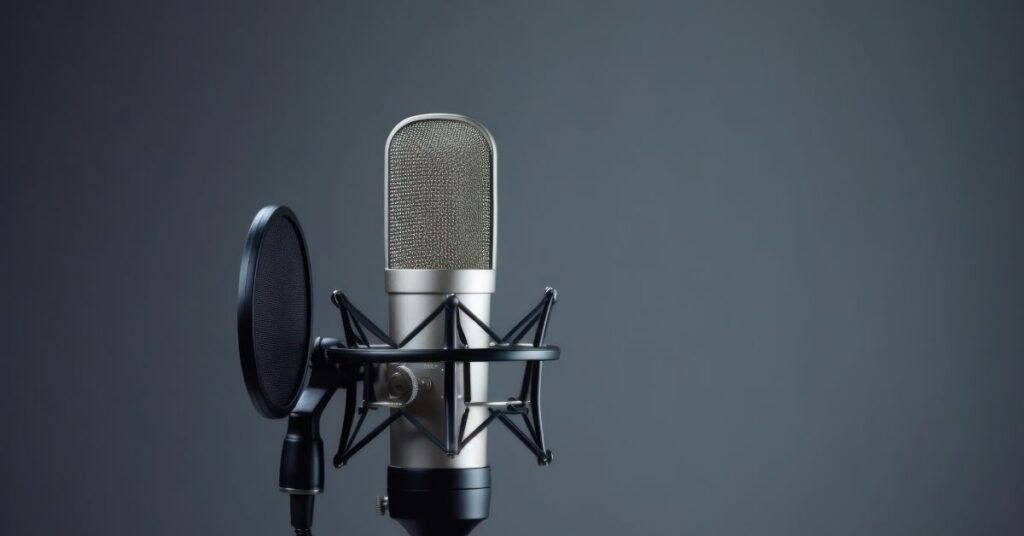Have you ever listened to a podcast and thought, “Wow, this is so well-crafted”? Behind the scenes, making it all happen, is the podcast producer. These unsung heroes are key players in podcast production, juggling tasks from start to finish to deliver top-notch content.
A podcast producer’s job isn’t just about hitting the record button; it’s an intricate role that involves a series of responsibilities.
They manage everything from the creative direction to the technical details, ensuring each episode resonates well with the audience. Whether it’s coordinating with guests, overseeing audio quality, or managing deadlines, a podcast producer is vital in producing engaging and seamless podcast experiences. Let’s take a closer look at what a podcast producer really does.
Key Responsibilities of a Podcast Producer

Podcast producers are the unsung heroes of audio content creation, wearing multiple hats and ensuring that every episode shines. Let’s dive into the core responsibilities that define their crucial role.
1. Overseeing the Production Process
The podcast producer is the captain of the ship when it comes to steering the entire production process. From the moment a new podcast idea is conceptualized, they jump into action, ensuring the show’s success. Their job is to oversee everything from the brainstorming of ideas to the final product that gets published.
This includes managing the direction, scriptwriting, and keeping a keen eye on every detail. Producers are instrumental in maintaining a high standard of quality for each episode, ensuring it captivates and engages the audience. They’re involved from start to finish, making sure that every piece falls into place perfectly.
2. Guest Management and Scheduling
Behind every great interview is a podcast producer who orchestrates the intricate dance of guest appearances. Producers manage guest research, booking, and scheduling with precision. They scout for the perfect guests who can provide valuable insights and engage listeners effectively.
This involves hunting down experts in the relevant fields, coordinating schedules, and ensuring that both the host and guest are well-prepared and comfortable. Their expertise in building connections and creating a friendly rapport between guests and hosts is vital for the smooth flow and success of the episodes.
3. Audio Editing and Sound Quality Management

A polished audio quality makes a podcast stand out, and this is where producers shine. Although they might not be audio engineers, their audio editing skills are pivotal. Producers ensure high-quality sound by managing recording sessions, which includes setting up appropriate, noise-free environments and overseeing the entire audio processing phase.
This phase includes editing, mixing, mastering, and ensuring that the final output is free from unwanted noise and is pleasing to the listener’s ear. By creating the best possible auditory experience, producers help the podcast thrive in the competitive audio landscape.
Different Levels of Podcast Producers
In the podcasting world, producers come in varying levels of expertise and responsibility, each contributing uniquely to a show’s success.
1. Associate Producer Roles
Associate Producers, or APs, are the entry-level foot soldiers of the podcasting world, but their role is anything but minor. They often juggle tasks such as coordinating and booking guests, conducting background research, and drafting interview questions.
APs also play a critical role in scheduling recordings and handling some of the initial audio editing. Their responsibilities include writing show notes and promotional material and keeping the gears of the podcast well-oiled and efficient.
2. Responsibilities of a Senior Producer
When you step into the shoes of a Senior Producer, the responsibilities expand into overseeing the more complex aspects of production. Senior Producers often supervise other producers and APs, making sure the entire creative process aligns with the show’s vision.
They are also involved in strategic planning, budgeting, and exploring partnerships to elevate the podcast’s brand. With a focus on optimizing processes, Senior Producers ensure that every element of production supports the podcast’s growth and sustainability while maintaining the intended creative direction.
3. Executive Producer Duties
Sitting at the pinnacle of the production hierarchy, an Executive Producer has their hands on the wheel of the entire operation. They focus less on daily production tasks and more on high-level decision-making. Executive Producers manage budgets, hire talent, and foster relationships that can lead to fruitful partnerships and marketing opportunities.
They work closely with the show’s leadership to steer the creative direction and ensure that the podcast aligns with broader organizational goals. By providing clarity and vision, Executive Producers make significant contributions to the long-term success of a podcast.
Essential Skills and Qualities for Podcast Producers

Being a podcast producer requires a versatile skill set that bridges creativity and technical know-how. Let’s dive into what makes a great podcast producer and the qualities they bring to the table.
- Experience in the Podcast Industry: A solid background in audio production or media is invaluable. Understanding the ins and outs of podcasting helps producers handle the various stages of production, from brainstorming ideas to finalizing episodes.
- Excellent Research Skills: Whether it’s digging deep into a topic, understanding audience demographics, or scouting for potential guests, research is a critical skill. Producers often use social media and other platforms to gather information that keeps content fresh and engaging.
- Effective Communication: Producers are the linchpin of a podcasting team. They need to communicate smoothly with hosts, guests, and technical staff, ensuring everyone is on the same page. This fosters a cooperative environment and enhances the production’s flow.
- Exemplary Writing Talent: Writing is a daily task, whether it’s drafting scripts, episode outlines, or promotional materials. Crafting compelling narratives and ensuring content clarity is a key part of a producer’s role.
- Storytelling Ability: Great producers are storytellers at heart. They help shape the narrative of each episode and ensure it resonates with listeners, holding their attention from start to finish.
- Marketing Knowledge: Growing a podcast requires strategic promotion. Producers need to be acquainted with marketing strategies that boost listener engagement and reach wider audiences.
- Attention to Detail: From audio quality to script accuracy, meticulousness is crucial. Producers must listen for and correct any issues in audio recordings and ensure all elements of an episode are polished and ready for release.
- Deadline-Oriented: Time management is vital. Producers often juggle multiple tasks and must adhere to strict schedules to ensure that podcast episodes are released on time.
- Collaborative Spirit: A producer needs to collaborate with both creative and technical team members seamlessly. This aspect of teamwork ensures smooth production and spurs creative exchange, which can elevate the podcast.
Ultimately, the combination of these skills and qualities ensures that a podcast producer can deliver engaging content consistently while navigating the dynamic challenges of media production. This blend of creativity, organization, and technical prowess makes producers indispensable in the podcasting world.
Conclusion
In summary, a podcast producer plays a crucial role in a podcast’s success by managing various tasks like guest interviews, audience research, creative direction, and audio editing.
They bring technical skills, creativity, and organization to deliver high-quality, engaging content. Whether hiring a producer or aspiring to become one, understanding their diverse responsibilities is important.
A skilled producer helps transform your vision into reality, enhances your show’s quality and reach, and allows you to focus on content creation while they manage the details.

